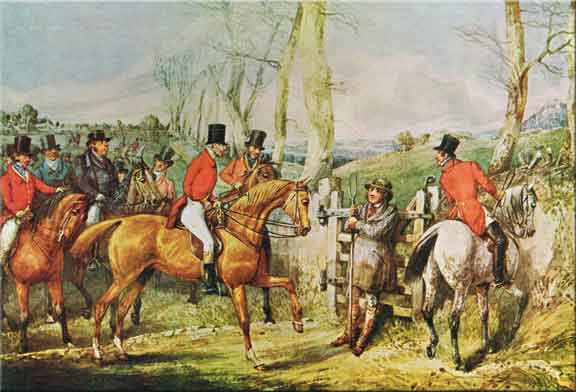
Push for alternative to leasehold system
Expansion of the commonhold system of home ownership as an alternative to leasehold tenancies has been urged by the government’s law reform adviser. Commonhold – where people own their homes without an expiring lease – was introduced 14 years ago, but has been little-used. Meanwhile, there have been widespread complaints about the leasehold system.
Press release from the Law Commission, 12.01am December
The Law Commission today [December 10 2018] has proposed reforms that would support the expansion of commonhold as an alternative to leasehold.
Commonhold was introduced in 2002 as a new way to own property. Commonhold allows a person to own a freehold flat and at the same time be a member of the company which owns and manages the shared areas and the structure of the building.
The benefits of commonhold
Commonhold offers significant benefits to homeowners compared to leasehold including:
• Owners own their property outright, so their ownership won’t run out in the future – whereas leases expire and extending them can be costly
• There is no landlord – instead, owners have a stake in the wider building and can make decisions about the shared areas together
• There is no ground rent – owners will only pay what it costs to maintain the building and will control that expenditure
• There is no risk of forfeiture in commonhold – in leasehold, if a leaseholder breaches the terms of the lease, the landlord can take back the property without paying anything to the leaseholder
• Standard rules and regulations apply – which means owners know where they stand, and should also make conveyancing simpler and cheaper.
The Law Commission is proposing a range of legal reforms which will remove barriers to commonhold’s uptake. These reforms, which are now open for consultation, should kickstart commonhold as an alternative way of owning property which avoids the shortcomings of leasehold ownership. The reforms would:
• Allow a commonhold development to include both residential units (incorporating different types of affordable housing such as shared ownership), as well as commercial units (such as restaurants and shops)
• Make it easier to convert from leasehold to commonhold
• Increase lender confidence in commonhold so as to increase the choice of mortgage lenders available for purchasers
• Replace service charges set by a landlord with commonhold contributions which have to be approved by a majority of those paying them.
The need for change
Commonhold ownership is commonly used around the world in countries such as the USA, Australia and across Europe. In England and Wales, commonhold has been available since 2002, but take-up has been poor; fewer than 20 commonhold developments have been built.
There are several reasons why commonhold has not taken off. For example, the system has been criticised for lacking flexibility to cater for larger, more complex developments and for making it difficult for existing leaseholders to convert their lease into commonhold. Legal issues have also made many mortgage lenders reluctant to provide loans against commonhold properties. These are all issues that this consultation addresses.
Recent dissatisfaction with the current leasehold system has led to pressure from the media and campaigners for reform, and demand for an alternative. Legal reform to reinvigorate commonhold is now required and is what our consultation looks to achieve.
The government is also considering other non-legal options for reinvigorating commonhold and suggestions for how this could be achieved are included in the consultation paper. These include increasing consumer awareness, improving mortgage lending, or incentivising or compelling the use of commonhold instead of leasehold.
Professor Nick Hopkins, Commissioner at the Law Commission said:
“Commonhold provides a once in a generation opportunity to rethink how we own property in England and Wales and offers homeowners an alternative system to leasehold.
“It involves a culture change, moving away from an “us and them” mindset, towards “us and ourselves”.
“We want to hear what people think of our proposals so we can be sure the commonhold system will work for homeowners and the wider property sector.”
ENDS
Notes for editors
For all media queries, please speak to Dan Popescu on:
Daniel.popescu@lawcommission.gov.uk
07784 275513
The consultation opens on 10 December 2018 and closes on 10 March 2018.
More details can be found here: https://www.lawcom.gov.uk/project/commonhold/
A short summary of the paper is also available.
The Law Commission is also undertaking two other projects to reform the housing market.
The Right to Manage project can be found here: https://www.lawcom.gov.uk/project/right-to-manage/
The Leasehold enfranchisement project can be found here: https://www.lawcom.gov.uk/project/leasehold-enfranchisement/
But, oh look at this, and weep:





 For God’s sake! Now it emerges £8.3 billion Help To Buy scheme – that turned house builder executives into multi-millionaires – is not available on commonhold properties!
For God’s sake! Now it emerges £8.3 billion Help To Buy scheme – that turned house builder executives into multi-millionaires – is not available on commonhold properties!






















Flats sold under Commonhold title gives “legal ownership” of the property to the buyer. .
Flats sold under Leasehold title gives a long term rental agreement ( Lease on the property ) to the buyer .
Most property purchases are financed by a 25-35 years mortgage loan and its better if the buyer owns the property after spending half a lifetime working to pay off the mortgage loan .
There is no economic sense in the 21st Century for any flat buyer to spend half a life time working off a mortgage loan on a rental agreement . All that economic effort to pay for a rental agreement without any legal ownership of the property actually damages the local economy.
In the House of Commons at 2.45 today, Sir Peter Bottomley asked why was Commonhold not supported by Government the reply was it did support Commonhold and would ensure it was in the future. Can we trust this Minister?
Its NOT ENOUGH for “Government” to say it will support Commonhold title in the future.
We have 4.1 million leaseholders in the private sector paying for leases on residential flats with average value at £175K , and total market value = £ 717 Bil of leaseholder savings wealth which will be slowly transferred to the “freeholders.”
If the flats were held under Commonhold title, the £717 Bil of wealth would remain with the buyers of the flat ( the end users ). This is really the seed money for next generations of our local citizens.
The Government and Housing Ministers are elected to Public Office by the people and have obligation to serve the best interests of the people and priority should be to a system which protects the people’s wealth.
The Housing Minister should not prop up an antiquated property system which transfers the family savings invested in the lease from “leaseholder” to the “freeholder “. It is pretty senseless to blindly protect the “rule of law” and let the local people lose their savings wealth.
Every person who knows how to use a computer, can understand that hacked software is an attack on the owner of the computer and the software company has to provide protection against the hacker.
The similar situation we are facing now is the “Leasehold property system” is like hacked software but the Housing Minister ( = the software company ) does not recognise the system is hacked.
Well said Ollie!
You can judge me again on this stuff :
The UK Government Tax Revenue for 2019 comes from :
Income tax 33%
National Insurance 18%
Business Taxes 7%
Indirect Taxes ( VAT etc) 42%.
Leaseholders pay income tax at 20% and 40% and 45% on earnings.
Freeholder companies pay corporation tax at 19% on profit AFTER deducting loan interest from the ground rent income and so pay very little tax contribution to the Tax Office.
So make sure your local MP and Court Judges understands who pays the taxes for upkeep of Parliament and the County Courts , FTT and UTT etc. Many of the freeholder companies don’t any tax.
As I said the Governments Tax revenue comes from :
33% from Leaseholders taxed at 20% and 40% and even 45%.
18% from Leaseholders ( for NI Contributions ).
7% from Businesses ( probably only peppercorns from Freeholder Cos.)